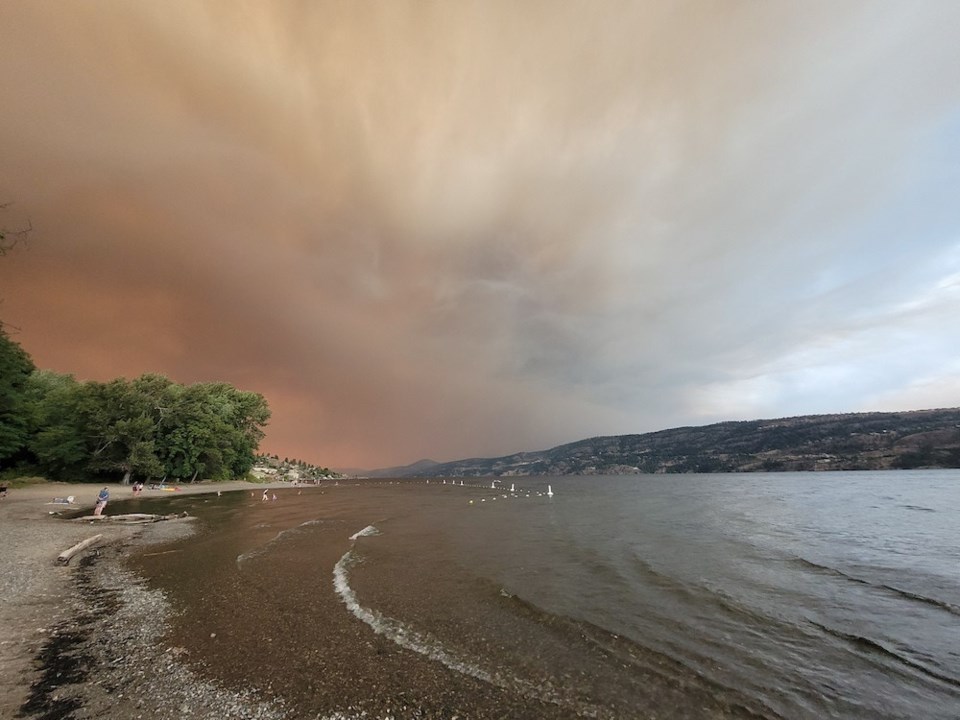Cooler weather conditions this week have helped firefighters across British Columbia, and crews have made good progress on some of the larger fires.
Following last Sunday's wind event that saw fires grow substantially across the southern Interior, resulting in dozens of homes destroyed, cooler conditions have followed, with significant rain falling in some areas.
During a wildfire update Thursday afternoon, Todd Nessman, manager of fire operations with BC Wildfire Service, said fire conditions are stable in most areas of the province now.
“We've had favourable weather this week, with increased precipitation, lower temps, and our [relative humidity] levels have increased. That's allowed us to make progress on many of our large fires and complexes,” Nessman said.
“The fire conditions right now are stable in most areas. That being said, we still have areas of concern that didn't receive the precip[itation] that came through earlier in the week. Those areas in the Cariboo Fire Centre and southern Okanagan still are facing dangerous fire behaviour conditions, and need to be monitored closely.”
The favourable weather conditions have allowed crews to shore up their containment lines on some of the larger fires, after fires jumped those lines last Sunday night.
“In terms of fire activity, we've made good progress, we've been able to tighten many of our containment lines,” Nessman said.
“With lower fire behaviour, it's allowed our crews to get up and close in many instances that we haven't been able to due to elevated fire behaviour. We've been able to use ignitions to help solidify some of our containment lines. It's been favourable conditions for our teams out there.”
Looking forward, Nessman said the forecast across the Interior looks promising as well.
“We're going to see a series of lows coming through the province, which will bring lower temperatures, increased relative humidity and scattered precip[itation], which will be favourable to our crews,” he said.
After an extremely hot and dry summer so far, the change in weather couldn't have come at a better time for the thousands of firefighters working the fire lines this year.
“Fatigue is something that we have a concern with. It's been a long summer for many of our firefighters and staff supporting the efforts,” Nessman said. “With that increased fatigue, we're starting to see more safety concerns come forward; more slips, trips, falls, those types of events, as well as other serious occurrences are happening.”
Of the more than 3,800 people currently fighting the fires across the province, 520 are from out of province, including 240 military personnel. Three days ago, 153 firefighters arrived from Quebec, while another 45 Yukon firefighters arrived in the province the following day.
More are set to arrive in the coming days from Parks Canada, Alberta and the Northwest Territories, with others from Eastern Canada following.



